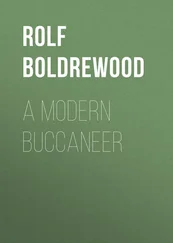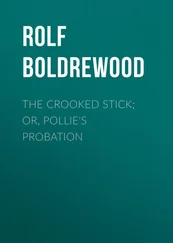Rolf Boldrewood - Babes in the Bush
Здесь есть возможность читать онлайн «Rolf Boldrewood - Babes in the Bush» — ознакомительный отрывок электронной книги совершенно бесплатно, а после прочтения отрывка купить полную версию. В некоторых случаях можно слушать аудио, скачать через торрент в формате fb2 и присутствует краткое содержание. Жанр: foreign_antique, foreign_prose, на английском языке. Описание произведения, (предисловие) а так же отзывы посетителей доступны на портале библиотеки ЛибКат.
- Название:Babes in the Bush
- Автор:
- Жанр:
- Год:неизвестен
- ISBN:нет данных
- Рейтинг книги:4 / 5. Голосов: 1
-
Избранное:Добавить в избранное
- Отзывы:
-
Ваша оценка:
- 80
- 1
- 2
- 3
- 4
- 5
Babes in the Bush: краткое содержание, описание и аннотация
Предлагаем к чтению аннотацию, описание, краткое содержание или предисловие (зависит от того, что написал сам автор книги «Babes in the Bush»). Если вы не нашли необходимую информацию о книге — напишите в комментариях, мы постараемся отыскать её.
Babes in the Bush — читать онлайн ознакомительный отрывок
Ниже представлен текст книги, разбитый по страницам. Система сохранения места последней прочитанной страницы, позволяет с удобством читать онлайн бесплатно книгу «Babes in the Bush», без необходимости каждый раз заново искать на чём Вы остановились. Поставьте закладку, и сможете в любой момент перейти на страницу, на которой закончили чтение.
Интервал:
Закладка:
Persistent advocacy secured his point. Daisy had been morally abandoned to her fate; but Wilfred, goaded by Andrew’s appeals, had an interview with the shipping clerk, and arranged that Daisy, if approved of, should fill the place of the proverbial milch cow, so invariably bracketed with the ‘experienced surgeon’ in the advertisements of the Commercial Marine. Her calf also, being old enough to eat hay, was permitted to accompany her.
Andrew also combated the idea that the greyhounds, or at least a pair, should be left behind, still less the guns or fishing-rods.
‘Wasna the Laird the best judge of a dog in the haill country-side, and no that far frae the best shot? What for suld he walk aboot the woods in Australia waesome and disjaskit like, when there might be kangaroos, or whatna kind o’ ootlandish game, to be had for the killing? Hoot, hoot, puir Page and Damsel couldna be left ahint, nor the wee terrier Vennie.’
There was more trouble with the greyhounds’ passage than the cows, but in consideration of the large amount of freight and passage-money paid by the family, the aristocratic long-tails were franked. Andrew, with his own hands, packed up the fowling-pieces and fishing-rods, which, with the exaggerated prudence of youth, Wilfred had been minded to leave behind, considering nothing worthy of removal that would not be likely to add to their material gains in the ‘new settlement.’ He had yet to learn that recreation can never be advantageously disregarded, whether the community be a young or an old one.
Little by little, a chain of slow yet subtle advances, by which, equally with geologic alterations of the earth’s surface, its ephemeral living tenants proceed or retrograde, effected the translation of Howard Effingham, with wife and children, retainers and household goods. Averse by nature to all exertion which savoured of detail, reserving his energy for what he was pleased to dignify with the title of great occasions, as he looked back over the series of multitudinous necessary arrangements, Howard Effingham wondered, in his secret soul, at the transference of his household. Left to himself, he was candid enough to admit, such a result could never have been achieved. But the ceaseless ministration of Jeanie and Andrew, the calm forethought of Mrs. Effingham, the unsparing personal labour of Wilfred, had, in due time, worked the miracle.
CHAPTER II
THE FIRST CAMP
Whatever may be the loss or injury inseparable from misfortune, no one of experience denies that the pain is lightened when the blow has fallen. The shuddering terror, the harrowing doubts, which precede an operation, far outrun the torture of the knife. Worse a thousandfold to endure than actual misery, poverty and disgrace, is the dull sense of impending doom, the daily anxiety, the secret dread, the formless, unhasting, unsparing terror, which each day brings nearer to the victim.
Howard Effingham had, for weeks past, suffered the torments of the lost. An unwise concealment of the coming ruin which his reserved temperament forbade him to announce, had stretched him upon the rack. The acute agony was now past, and he felt unspeakably relieved as, with increasing completeness, the preparations for departure were accomplished.
After the shock of the disaster he commenced the necessary duties with an unwontedly tranquil mind. He had despatched a bank draft for the amount mentioned by his friend and counsellor the Rev. Harley Sternworth. Prior to this needful act, he held various conferences with the trustees of Mrs. Effingham’s settlement. In many instances such authorities are difficult, even impracticable, to deal with, preferring the minimum interest which can be safely procured in the matter of trust money, to the slightest risk. In this instance, the arbiter of destiny was an old gentleman, at once prudent yet liberal-minded, who did not disdain to examine the arguments in favour of the Australian plan. After reading Mr. Sternworth’s letter, and comparing the facts therein stated with colonial securities, to which he had access, he gave in his adhesion to the investment, and converted his coadjutor, a mild, obstinate personage, who could with difficulty be induced to see any other investment legally open to them but the ‘sweet simplicity of the three per cents.’
Long was the last day in coming, but it came at last. Their stay in the old home was protracted until only time was given for the journey to Southampton, where the staunch, old-fashioned wool-ship lay, which was to receive their condensed personal effects and, as it seemed to them, shrivelled-up personalities.
Adieus were said, some with sore weeping and many tears; some with moderate but sincere regret; some with the half-veiled indifference with which any action not affecting their own comfort, interest, or reputation is regarded by a large class of acquaintances. The minor possessions – the carriages, the horses, the library, the furniture – were sold. A selection of the plainest articles of this last requisite, which, the freight being wonderfully low, their chief adviser had counselled them to carry with them, was alone retained.
‘It will sell for next to nothing,’ his last letter had said, ‘judging from my experience after the regiment had “got the route,” and you will have it landed here for less than the price of very ordinary substitutes. Bring all the small matters you can, that may be useful; and don’t leave the piano behind. I must have a tune when I come to see you at Warbrok, and hear Mrs. Effingham sing “Auld Robin Gray” again. You recollect how our old Colonel broke down, with tears rolling over his wrinkled cheeks, when she sang it?’
All was now over. The terrible wrench had been endured, tearing apart those living fibres which in early life are entwined around hearth and home. They had gazed in mournful farewell upon each familiar thing which from childhood’s hour had seemed a portion of their sheltered life. Like plants and flowerets, no denizens of hothouse or simulated tropic clime, but not the less carefully tended from harmful extremes, climatic or social, had the Effingham family grown and flourished. Now they were about to be abandoned to the elemental forces. Who should say whether they would wither under rude blasts and a fiercer sun, or, from natural vigour and inherent vitality, burgeon and bloom beneath the Southern heavens?
Of the whole party, she who showed less outward token of sorrow, felt in her heart the most unresting anguish. To a woman like Mrs. Effingham, reared from infancy in the exclusive tenets of English county life, the idea of so comprehensive a change, of a semi-barbarous migration, had been well-nigh more bitter than death – but for one source of aid and spiritual support, unendurable.
Her reliance had a twofold foundation. The undoubting faith in a Supreme Being, who ordered aright all the ways of His creatures, even when apparently remote from happiness, remained unshaken. Firmly had she ever trusted in that God by whom her former life had been guided. Events might take a mysteriously doubtful course. But, in the wilderness, under leafy forest-arches, beneath the shadow of the gathering tempest, on land or ocean, she would trust in God and her Redeemer. Steadfast and brave of mien, though with trembling lip and sickened heart, she marshalled her little troop and led them on board the stout ship, which only awaited the morrow’s dawn to spread her wings and sweep southward – ever southward – amid unknown seas, until the great island continent should arise from out the sky-line, telling of a land which was to provide them with a home, with friends, even perhaps a fortune. What a mockery in that hour of utter wretchedness did such hope promptings appear!
After protracted mental conflict, no more perfect system of rest can be devised than that afforded by a sea-voyage. Anxiety, however mordant, must be lulled to rest under the fixed conditions of a journey, before the termination of which no battle of life can be commenced, no campaign resumed.
Читать дальшеИнтервал:
Закладка:
Похожие книги на «Babes in the Bush»
Представляем Вашему вниманию похожие книги на «Babes in the Bush» списком для выбора. Мы отобрали схожую по названию и смыслу литературу в надежде предоставить читателям больше вариантов отыскать новые, интересные, ещё непрочитанные произведения.
Обсуждение, отзывы о книге «Babes in the Bush» и просто собственные мнения читателей. Оставьте ваши комментарии, напишите, что Вы думаете о произведении, его смысле или главных героях. Укажите что конкретно понравилось, а что нет, и почему Вы так считаете.












